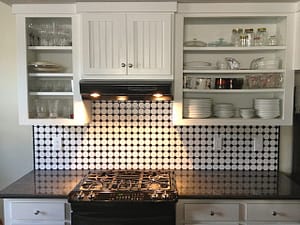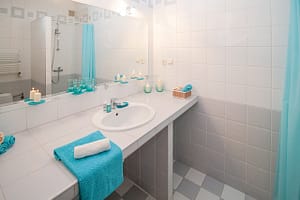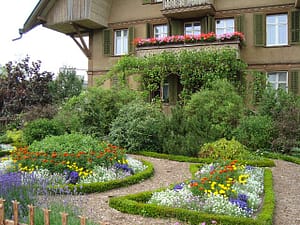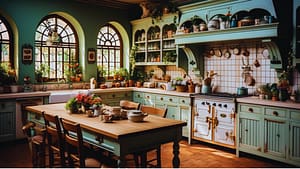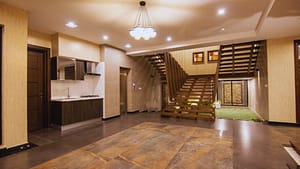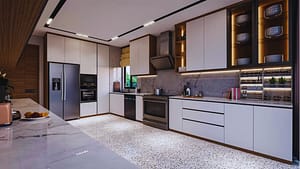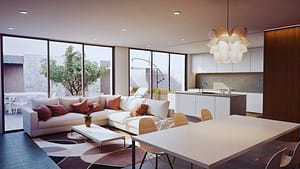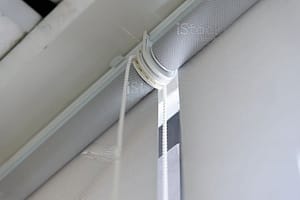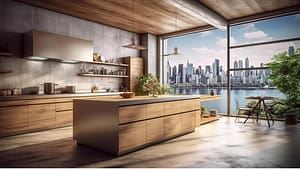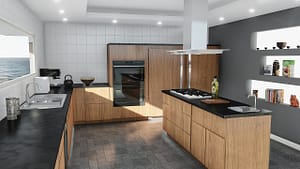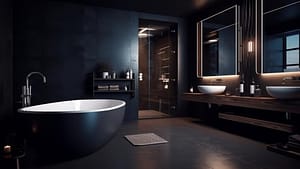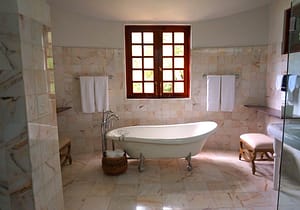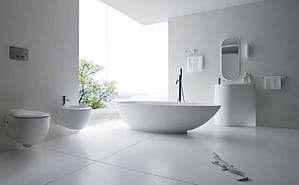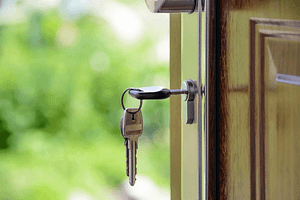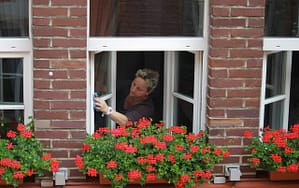
Oh, summer is right around the corner. The temperature is rising, with occasional heavy rainfall. While we are excited about all the fun barbeques and vacations, it’s essential to take the time to maintain our home this summer and prepare for the extreme heat we may face. Unfortunately, when the heat of summer begins to rise, it usually accompanies the cost of electricity. High temperatures mean that the air conditioner is running day and night, leading to high utility bills.
So, either way, there’s no better time to start a summer home maintenance project with rising temperatures. Keeping the environment in our home as cool as possible is an effective way to combat these thermal hurdles for your residence with a series of simple hacks. With that in mind, we have accumulated some cost-effective house cooling tips with long-term benefits to putting into practice in the following hot weather. And, in the process of keeping your house cool and comfortable, you can also achieve the standard 6-star energy rating for your home.
Get an Energy-Efficient Dehumidifier
 Believe it or not, high- humidity during summer can cause structural problems in a house over time. Condensation can form, leading to mildew, mould growth and eventual deterioration. Prolonged humidity and high levels of moisture can also damage furniture. And when the air in your home is too humid, your air conditioner has to do a double job- cooling the air and removing the moisture, which ultimately costs higher energy bills.
Believe it or not, high- humidity during summer can cause structural problems in a house over time. Condensation can form, leading to mildew, mould growth and eventual deterioration. Prolonged humidity and high levels of moisture can also damage furniture. And when the air in your home is too humid, your air conditioner has to do a double job- cooling the air and removing the moisture, which ultimately costs higher energy bills.
So during humid climates, dehumidifiers can be the perfect partner for air conditioners as a great way to reduce the moisture in your home. Energy-efficient dehumidifiers also help keep the air much cooler and limit the spread and growth of bacteria. In addition, dehumidifiers help reduce energy charges because the air conditioner does not have to work that hard.
Cook Outdoors
 On the hottest and muggiest summer days, just thinking about turning on the stove can be scary. Therefore, unlike cooking indoors, eating outdoors saves energy. But how? The answer is very simple. It means that the consumption of the air conditioner is low. Ventilation is provided when cooking “great outdoors”. All the heat from the grill “floats” in the air rather than being trapped. This keeps your home cool, but it’s also the best way to keep your fridge at the right temperature without worrying about or adding to your energy bill. So, not only can you enjoy it, but you can keep your house cool by cooking outdoors while cooking your favourite summer meals with your family.
On the hottest and muggiest summer days, just thinking about turning on the stove can be scary. Therefore, unlike cooking indoors, eating outdoors saves energy. But how? The answer is very simple. It means that the consumption of the air conditioner is low. Ventilation is provided when cooking “great outdoors”. All the heat from the grill “floats” in the air rather than being trapped. This keeps your home cool, but it’s also the best way to keep your fridge at the right temperature without worrying about or adding to your energy bill. So, not only can you enjoy it, but you can keep your house cool by cooking outdoors while cooking your favourite summer meals with your family.
Treat Your Roof with Heat Reflective Paint Coats
 As a part of your home improvement upgrades, you can choose UV-reflecting paint for the roof. These UV-protective roof coatings help reflect harmful UV rays and solar radiation, limit heat absorption, reduce energy costs, and negatively affect the environment. UV-reflecting roofs reflect infrared rays for terraces, roofs, or fences to minimise heat buildup. If you live in a hot and humid climate, this coating will extend the life of your walls, prevent dust, moisture and bacteria, and keep your interior cool and fresh. Benefits of using heat reflective paint on the roof also include longevity of the roof, protection from thermal shock and corrosion, and low leakage.
As a part of your home improvement upgrades, you can choose UV-reflecting paint for the roof. These UV-protective roof coatings help reflect harmful UV rays and solar radiation, limit heat absorption, reduce energy costs, and negatively affect the environment. UV-reflecting roofs reflect infrared rays for terraces, roofs, or fences to minimise heat buildup. If you live in a hot and humid climate, this coating will extend the life of your walls, prevent dust, moisture and bacteria, and keep your interior cool and fresh. Benefits of using heat reflective paint on the roof also include longevity of the roof, protection from thermal shock and corrosion, and low leakage.
Add House Plants Strategically
 Another natural way to improve air quality and keep your home cool in the summer is to use houseplants. The plants like Chrysanthemums, Bamboo, Palm, Ficus etc., lose moisture during transpiration and cools the air around them to keep them clean and fresh during summer. In addition, many indoor plants like these are known to remove harmful toxins from the air, lower the ambient temperature, and at the same time help decorate the home. Plants also tend to keep humidity levels within optimal limits for human health. On top of that, indoor plants also eliminate the need for energy-intensive air cooling systems.
Another natural way to improve air quality and keep your home cool in the summer is to use houseplants. The plants like Chrysanthemums, Bamboo, Palm, Ficus etc., lose moisture during transpiration and cools the air around them to keep them clean and fresh during summer. In addition, many indoor plants like these are known to remove harmful toxins from the air, lower the ambient temperature, and at the same time help decorate the home. Plants also tend to keep humidity levels within optimal limits for human health. On top of that, indoor plants also eliminate the need for energy-intensive air cooling systems.
You may have one or two indoor plants in your house for aesthetic reasons, but consider incorporating large quantities of certain plants into your home that can keep the air cool and wash away toxins. This environmental benefit also saves on utility bills. You can also grow several foods yourself at the same time by choosing the right plants.
Check the Insulation
 Home insulation is just as important in summer as it is in winter. Insulation is needed in
Home insulation is just as important in summer as it is in winter. Insulation is needed in
summer, especially in the ceiling or attic, traps cold air and prevent the house from overheating.
As one of the key features of a 6-star energy rated home, efficient insulation can also save summer air conditioning costs with the help of solid wall insulation that conducts twice as much heat as standard hollow walls. Proper home insulation will be the most significant difference between a comfortable and efficient home in the summer and an uncomfortable and expensive home. Insulation around the walls, ceilings, attics, air ducts, floors, etc., should be able to keep cold air inside while keeping hot air out of your home.
Last But Not Least, Get an Energy Audit
 While house owners have concerns regarding staggering utility bills, the summer season is actually an appropriate time of the year to make energy-efficient upgrades around the house.
While house owners have concerns regarding staggering utility bills, the summer season is actually an appropriate time of the year to make energy-efficient upgrades around the house.
And residential energy audits are a perfect starting point for anyone who wants to make smart upgrades within zero to a reasonable yet sustainable expense. Energy audits can help you identify your home’s energy-hogging devices or conditions and find suitable projects and services to improve your home and achieve a 6-star energy rating. And we already know that homes rated as 6-star Energy use significantly less energy for heating and cooling than traditional homes. This leads to significant cost savings each year.
Home energy audits can also show homeowners how to save up to 30% on annual electricity bills with a few simple changes. So, why wait when you think about how much you spend on cooling your home every month? In addition, these simple upgrades can save you enough money to pay for other upgrades in your home! For instance, by making some improvements to your home insulation and reducing leaks in your home, you reduce the amount of cooling your air conditioner must generate to keep you cool. And by reducing the load on the air conditioner, you can extend the air conditioner’s longevity.

